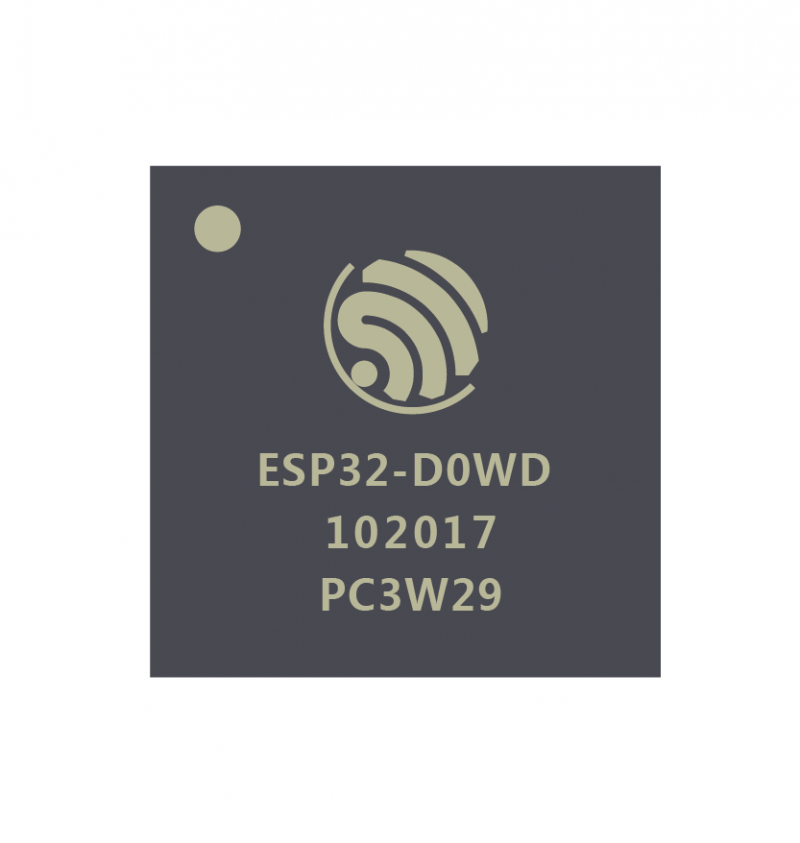
ESP32-D0WD

ESP32 is a single 2.4 GHz Wi-Fi-and-Bluetooth combo chip designed with the TSMC ultra-low-power 40 nm
technology. It is designed to achieve the best power and RF performance, showing robustness, versatility and
reliability in a wide variety of applications and power scenarios.
ESP32 is a highly-integrated solution for Wi-Fi-and-Bluetooth IoT applications, with around 20 external components. ESP32 integrates an antenna switch, RF balun, power amplifier, low-noise receive amplifier, filters,
and power management modules. As such, the entire solution occupies minimal Printed Circuit Board (PCB)
area.
ESP32 uses CMOS for single-chip fully-integrated radio and baseband, while also integrating advanced calibration
circuitries that allow the solution to remove external circuit imperfections or adjust to changes in external conditions. As such, the mass production of ESP32 solutions does not require expensive and specialized Wi-Fi testing
equipment
| Manufacturer(s) | Espressive |
| CPU | 160, 240 |
| ROM | 448 KB |
| SRAM | 520 KB |
| RTC SRAM | 16 B |
| Total nr of pins | 48 |
| Programmable pins | 34 |
Xtensa® single-/dual-core 32-bit LX6 microprocessor(s), up to 600 MIPS (200 MIPS for ESP32-S0WD, 400
MIPS for ESP32-D2WD)
Common Specifications for all ESP32-S series
- Two or one CPU core(s) with adjustable clock frequency, ranging from 80 MHz to 240 MHz
- +19.5 dBm output power ensures a good physical range
- Classic Bluetooth for legacy connections, also supporting L2CAP, SDP, GAP, SMP, AVDTP, AVCTP, A2DP (SNK) and AVRCP (CT)
- Support for Bluetooth Low Energy (Bluetooth LE) profiles including L2CAP, GAP, GATT, SMP, and GATT-based profiles like BluFi, SPP-like, etc
- Bluetooth Low Energy (Bluetooth LE) connects to smart phones, broadcasting low-energy beacons for easy detection
- Sleep current is less than 5 μA, making it suitable for battery-powered and wearable-electronics applications
- Peripherals include capacitive touch sensors, Hall sensor, low-noise sense amplifiers, SD card interface, Ethernet, high-speed SPI, UART, I2S and I2C